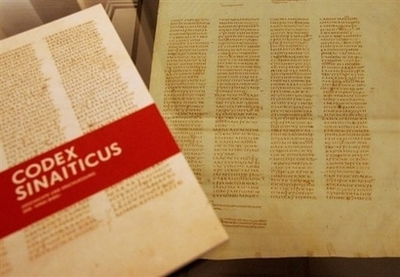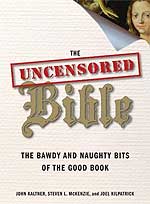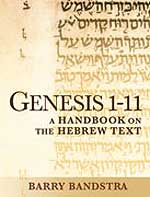As I mentioned in my previous post, Yahweh – A Moral Monster?, I wanted to interact with Paul Copan’s article written in response to the views of the so-called “new atheists.” In this post I will review Copan’s article, “Is Yahweh a Moral Monster? The New Atheists and Old Testament Ethics” (available from the Evangelical Philosophical Society website here), which rehearses many of the classic evangelical responses to the problem of the Canaanite genocide. While I will provide some of my own evaluation, I will leave the bulk of my own perspective for my next post.
I should note that Copan is concerned with responding to broader charges against the Old Testament/Hebrew Bible by the new atheists and aims to “discern the powerful moral vision of the OT” against their criticisms. My interaction with Copan will restrict itself to those points that intersect with the genocide question.
ANE Cultural Context
Copan’s first point is that “We must allow the OT ethical discussion to begin within an ANE setting, not a post-Enlightenment one.” This is certainly correct. Our world is not the world of the Bible. The ANE was a harsh world and the OT reflects this. He further argues that while the OT world is harsh and different than our world, you also find that “God is incrementally ‘humanizing’ ANE structures within Israel to diminish cruelty and elevate the status of, say, slaves and women-even if such customs are not fully eliminated.” While I would agree to a certain extent (for instance, there are a number of studies that compare the Deuteronomic Code [DC] with other biblical and ANE law codes and finds that the DC is more “enlightened” – for lack of a better term), I would also be wary of trying to paint the ANE worse so that the Hebrew Bible looks far better in comparison. That being said, understanding the harsh world of the ANE will at least help us understand the biblical portrayal of Yahweh more sympathetically perhaps. In my mind, it is also useful to recognize that ancient Israel would naturally embed their view of God in their cultural context (uh, how could they not?), and this image of God would naturally not fit our modern sensibilities (of course, this raises the question of revelation, though you could just flip the point and say that God revealed godself in ways that would be understandable to ancient Israelites).
Development & Diversity in the OT/HB
Second, Copan maintains that there are “differing ethical demands for differing historical contexts in OT Israel’s history.” Thus, even within the OT/HB there is development. The divine command to wipe out the people in the land (Canaanites et al) was a one time command at a very specific period of Israel’s history (although herem warfare did crop up again with the Amalekites and King Saul, although this was related to the conquest of Canaan; see 1Sam 15). “Genocide” was not Israel’s modus operandi. The Deuteronomic laws themselves make a distinction between “holy war” in general and war against the lands “God is giving them as an inheritance” in particular (compare Deut 20:10-15 and vv. 16-20).
Formulaic and Stylized Nature of the Biblical Witness
A third major argument Copan raises concerns the nature of the biblical witness. Let me quote him in full:
Let me add a few more thoughts about warfare here. First, Israel would not have been justified to attack the Canaanites without Yahweh’s explicit command. Yahweh issued his command in light of a morally-sufficient reason-the incorrigible wickedness of Canaanite culture. Second, the language of Deuteronomy 7:2-5 assumes that, despite Yahweh’s command to bring punishment to the Canaanites, they would not be obliterated-hence the warnings not to make political alliances or intermarry with them. We see from this passage too that wiping out Canaanite religion was far more significant than wiping out the Canaanites themselves. Third, the “obliteration language” in Joshua (for example, “he left no survivor” and “utterly destroyed all who breathed” [10:40]) is clearly hyperbolic. Consider how, despite such language, the text of Joshua itself assumes Canaanites still inhabit the land: “For if you ever go back and cling to the rest of these nations, these which remain among you, and intermarry with them, so that you associate with them and they with you, know with certainty that the Lord your God will not continue to drive these nations out from before you” (23:12-13). Joshua 9-12 utilizes the typical ANE’s literary conventions of warfare.
Copan highlights a number of points here. First, he notes that, biblically speaking, the Canaanites “had it coming” due to “the incorrigible wickedness of Canaanite culture.” While this reflects a biblical perspective (see especially Deuteronomy 9-10 where it says, among other things, “It is not because of your [Israel’s] righteousness or the uprightness of your heart that you are going in to occupy their land; but because of the wickedness of these nations Yahweh your God is dispossessing them before you” [Deut 9:5]), it makes me a bit uncomfortable since history has made it clear that it is easy for one group to demonize another.
Second, Copan notes that the language of herem is formulaic and naturally filled with hyperbole, and the biblical text also seems to imply in a number of places the failure of the Canaanite operation. Of course, as I already mentioned, that Israel failed historically in their ethnic cleansing (or even if it is propagandistic fiction), doesn’t change the fact that the Bible portrays Yahweh commanding it. While I concur with Copan that the texts employ certain formulaic language in regards to Yahweh war, the narrative examples provided in the biblical text (e.g., Jericho in Judges 6, Saul and the Amalekites in 1Sam 15), suggest that when the biblical text talks about killing all “men, women, and children” it is not an exaggeration.
God’s Prerogative
Copan then makes what he considers is the crux of his argument concerning the Canaanite genocide. Again, I quote in full:
if God exists, does he have any prerogatives over human life? The new atheists seem to think that if God existed, he should have a status no higher than any human being. Thus, he has no right to take life as he determines. Yet we should press home the monumental difference between God and ordinary human beings. If God is the author of life, he is not obligated to give us seventy or eight years of life.
….
That being the case, he can take the lives of the Canaanites indirectly through Israel’s armies (or directly, as he did when Sodom was destroyed in Genesis 19) according to his good purposes and morally sufficient reasons. What then of “innocent women and children”? Keep in mind that when God destroyed Sodom, he was willing to spare the city if there were even ten innocent persons. Not even ten could be found. Given the moral depravity of the Canaanites, the women were far from innocent.
In connection with the killing of children and babies, Copan argues that “death would be a mercy, as they would be ushered into the presence of God and spared the corrupting influences of a morally decadent culture.” This argumentation makes me uncomfortable for a variety of reasons, least of which it presupposes a NT understanding of the afterlife (the OT is not clear what happens after death). That being said, I am not sure how we can get around the notion of Yahweh’s/God’s rightful prerogative over human life. If Yahweh is God — if God is God — then does not he have the perrogative to judge his creation? This point by Copan brings the discussion out of the OT/HB and into the Christian Bible as a whole, since the NT also portrays God as the ultimate judge over his creation.
This, then, is Copan’s response. In my next post I will provide some of my own thoughts on the subject.
 The first online phase of the Codex Sinaiticus digitization project headed by the Institute for Textual Scholarship and Electronic Editing at the University of Birmingham, in cooperation with the British Library and the three other holding libraries, will be going live Thursday 24 July 2008 at www.codexsinaiticus.org.
The first online phase of the Codex Sinaiticus digitization project headed by the Institute for Textual Scholarship and Electronic Editing at the University of Birmingham, in cooperation with the British Library and the three other holding libraries, will be going live Thursday 24 July 2008 at www.codexsinaiticus.org.
 One of my summer reads that I just finished is a new book that takes a lighter — and somewhat irreverent and certainly risqué — look at the Hebrew Bible/Old Testament:
One of my summer reads that I just finished is a new book that takes a lighter — and somewhat irreverent and certainly risqué — look at the Hebrew Bible/Old Testament: So, as I mentioned in a
So, as I mentioned in a